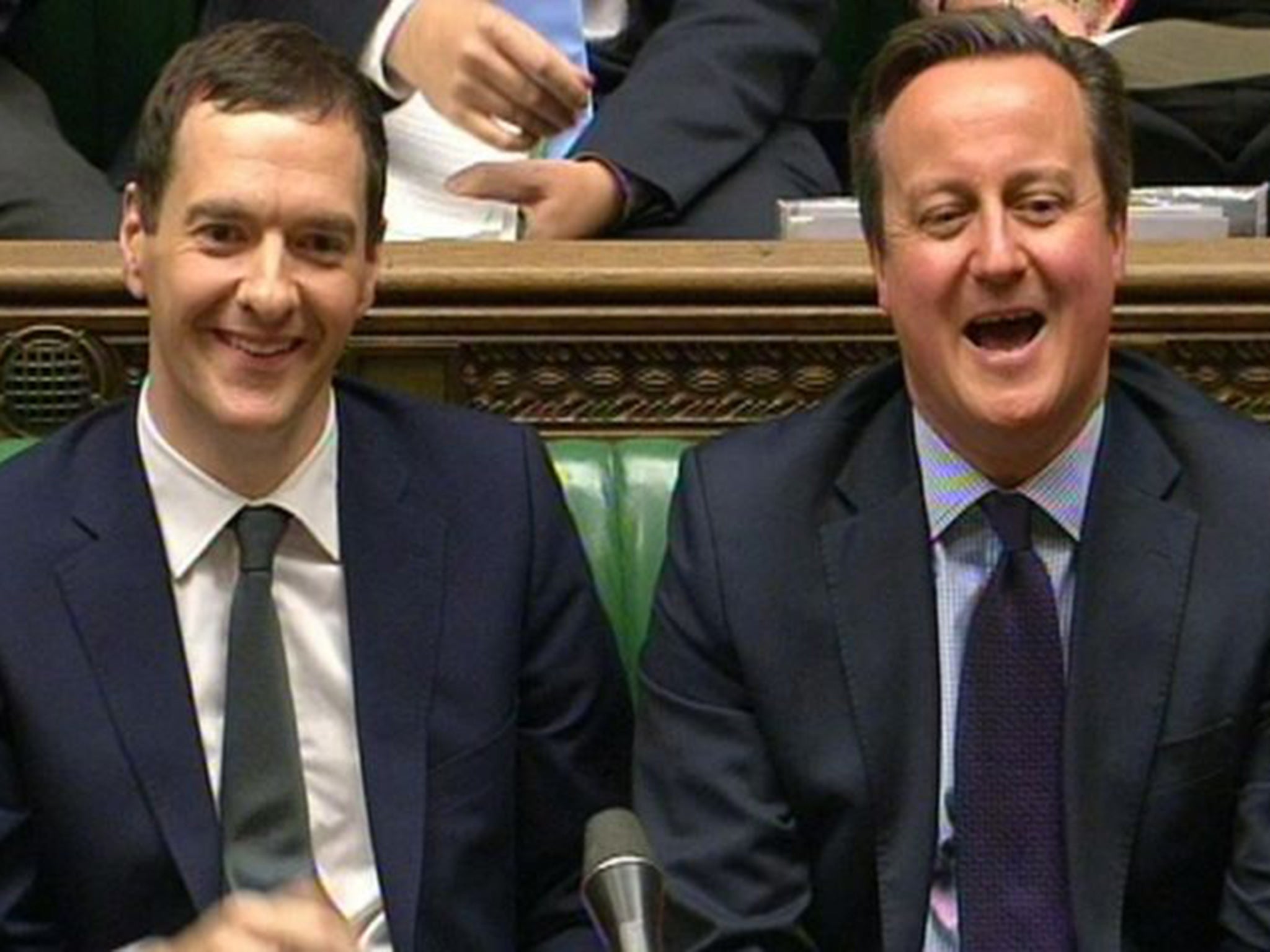Your support helps us to tell the story
From reproductive rights to climate change to Big Tech, The Independent is on the ground when the story is developing. Whether it's investigating the financials of Elon Musk's pro-Trump PAC or producing our latest documentary, 'The A Word', which shines a light on the American women fighting for reproductive rights, we know how important it is to parse out the facts from the messaging.
At such a critical moment in US history, we need reporters on the ground. Your donation allows us to keep sending journalists to speak to both sides of the story.
The Independent is trusted by Americans across the entire political spectrum. And unlike many other quality news outlets, we choose not to lock Americans out of our reporting and analysis with paywalls. We believe quality journalism should be available to everyone, paid for by those who can afford it.
Your support makes all the difference.Here is George Osborne's Spending Review and Autumn Statement at a glance.
:: The Chancellor announced he is to scrap planned cuts to tax credits for millions of low paid workers.
:: He ruled out any cuts in police budgets in England and Wales.
:: Mr Osborne told the Commons welfare savings totalling £12 billion will be "delivered in full... in a way that helps families".
:: Debt forecast is to be 82.5% of national income this year, down from 83.6% at time of July Budget, Mr Osborne said. Debt is to fall to 81.7% next year, then 79.9% in 2017/18, 77.3% in 2018/19, 74.3% in 2019/20 and 71.3% in 2020/21.
:: The Government will borrow £8 billion less than forecast and spend £12 billion more on capital investments.
:: He said the deficit is to be 3.9% of national income this year, then 2.5% in 2016/17 and 1.2% and 0.2% in subsequent years, before moving to surplus of 0.5% in 2019/20 and 0.6% the following year.
:: Borrowing forecast for this year is cut from £74.1 billion to £73.5 billion, falling to £49.9 billion, £24.8 billion and £4.6 billion in subsequent years, reaching a surplus of £10.1 billion in 2019/20 and £14.7 billion in 2020/21.
:: State spending to hit 36.5% in five years - down from 45% in 2010.
:: There will be public spending of £756 billion this year, then £773 billion, £787 billion, £801 billion in subsequent years, reaching £821 billion in 2019/20 and £857 billion 2020/21.
- The NHS is to deliver £22 billion efficiency savings in England and Department of Health to cut 25% from its Whitehall budget.
- The Chancellor confirmed a commitment to £10 billion real terms increase in the health service budget delivered in full, with the first £6 billion delivered up front next year. NHS budget to rise from £101 billion today to £120 billion by 2020/21.
- An additional £600 million will be spent on mental health.
- There will be an additional £1.5 billion for local authorities by 2019/20 through the Better Care Fund.
- Mr Osborne said basic state pension is to rise by £3.35 next year to £119.30 a week.
- Savings credits are to be frozen at the current level.
- The Department for Transport operational budget will be cut by 37%, but transport capital spending to increase by 50% to £61 billion.
- The £15 million raised each year from VAT on tampons to be used to fund women's health and support charities.
- Investment of £23 billion in school buildings and 600,000 new school places, with 500 new free schools and University Technical Colleges.
- Total financial support for education and childcare to increase by £10 billion, and new national funding formula to be introduced for schools from 2017.
- Spending on single intelligence account to rise from £2.1 billion to £2.8 billion by 2020/21 and defence budget from £34 billion to £40 billion.
- Overseas aid budget to increase £16.3 billion by 2020.
PA

Join our commenting forum
Join thought-provoking conversations, follow other Independent readers and see their replies
Comments